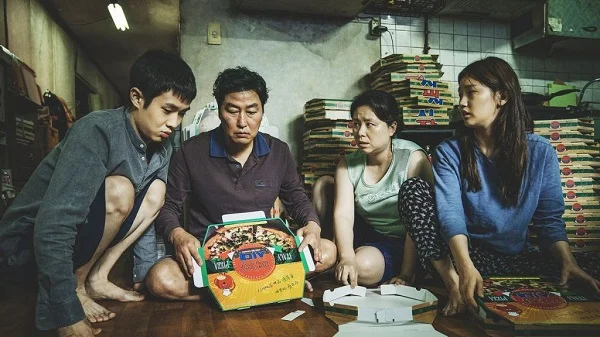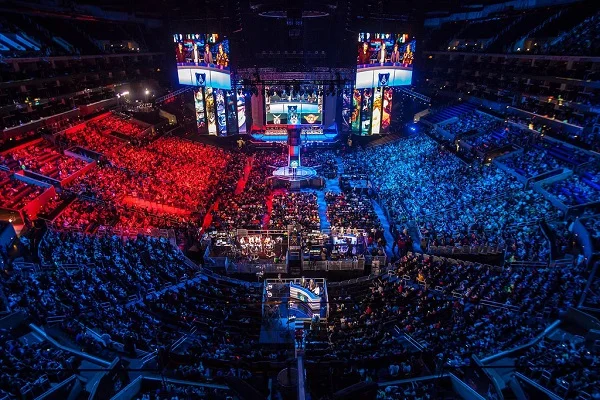How does Korean culture affect Korean Translation? The challenges in translation don’t just stem from vocabulary or grammar but also native culture because language is the first reflection of culture. To achieve seamless and high-quality translation tailored to local preferences, translators need to know unique and fascinating Korean culture facts.
Every nation in the world has fascinating and captivating legends and myths about their origin that reflect the spirit of national pride, gratitude, and an awareness of their cultural roots. South Korea is one of the countries with various founding myths and legends. Among them, the most important and ancient is the legend of Dangun (단군), the first king who founded the Choson kingdom in 2333 BC.
Furthermore, South Korea has a rich tapestry of folk tales. To preserve their unique cultural heritage, Korean film screenwriters have incorporated elements of myths and folktales into impressive and captivating cinematic masterpieces. This is also one of the most impressive Korean culture facts.
Some examples are such as “Goblin“, “My Girlfriend is a Gumiho“, and “The Legend of the Blue Sea“. It can be seen that Korean folklore carries an unwavering vitality and serves as an endless source of inspiration for filmmakers.

While these stories are inspired by domestic myths and characters, the gripping plots, exceptional actors, and beautiful settings make this genre of Korean drama unique and appealing to local and international audiences. Through these films, the rich cultural heritage of South Korea has been brought closer to audiences around the globe.
Korean folklore not only serves as a basis for understanding the cultural subjects, spaces, and time of the country in the distant past but also represents the deep national spirit and the self-awareness of the Korean people.
Traditional values are the gateway to the present and the future. South Korea is a country that greatly values its traditions in various aspects. The Koreans respect family values, honor their ancestors, and uphold virtues such as filial piety and benevolence. Alongside these values, they continuously maintain and promote traditional values in areas such as religion, art, architecture, national dress, and ceremonies.
One of the symbols of Korean cultural pride is the traditional clothing, Hanbok. Today, Koreans wear the Hanbok on most traditional holidays to express their national pride and gratitude to their ancestors.
Beyond preservation, Koreans also make efforts to promote their cultural beauty through period dramas and reality TV shows. Although the entertainment industry in “the land of morning calm” is highly competitive and requires leading domestic television stations such as KBS, MBC, and SBS to establish unique brands, they all share a common goal – the promotion of Korean culture.
In the Korean reality show “Running Man“, for example, cultural elements such as traditional Hanbok attire, traditional musical instruments, folk games, and historical cultural locations are cleverly integrated into each episode to bring the image of South Korea closer to international friends. Especially, traditional Korean cuisine, including dishes like Tteokbokki, Bungeo-ppang (carp bread), and Soju, plays an essential role, continuously appearing in various scenes.

In translation, understanding the unique traditional values of South Korea helps translators create high-quality translations that fully convey the cultural spirit of the country. Cultural differences set Korean culture apart, so when translating documents rich in Korean culture, content localization to suit the culture of the target language is essential to make the translation more relevant to readers.
The term “Chaebol” is one that piques the interest of many around the world. Chaebols refer to a group of large capitalist businesses or enterprises with substantial power in the business world. In South Korea, Chaebols are major national conglomerates run and controlled by family members.
The emergence of these Chaebols is a source of immense pride for South Korea. In 1963, South Korean President Park Chung-hee, after being elected, quickly set forth a five-year economic development plan, focusing on industrialization and modernization and the establishment of top economic conglomerates. After many years of implementing this plan, through unity and the unwavering determination of the people, South Korea achieved the “Miracle on the Han River“, which witnessed the birth of Chaebols.
One of the famous quotes from Lee Byung-chul, the founder of Samsung Group, is, “We don’t sell products, we sell dreams.”This somewhat reflects the resolute spirit, unwavering determination, and belief in the dream of a prosperous and developed South Korea.
Today, five Chaebols in South Korea are officially recognized: Samsung Group, Hyundai Group, SK Group, LG Group, and Lotte Group, representing up to 50% of the South Korean stock market. These Chaebols exert significant influence over various aspects of South Korea, including politics, the economy, and society, and symbolize the miraculous development of the country.
When it comes to South Korea, one cannot ignore the global cinematic phenomenon known as Korean dramas (K-drama). Perhaps everyone has once immersed themselves in the cinematic world of this leading regional and even worldwide film industry.
Most K-dramas are rich in romantic elements, but Korean filmmakers apply diverse storytelling techniques to this familiar genre, transforming it into captivating stories across various themes like military, school life, horror, historical, and medical dramas.
Some have rapidly gained global popularity, such as “Crash Landing on You“, “Squid Game“, “Train To Busan” and recently, “Parasite” which impressively won the leading four Academy Awards, including Best Picture, Best Director, Best International Feature Film, and Best Original Screenplay.

K-drama is one of the strategies for South Korea to promote its culture worldwide. Through these remarkable motion pictures, global audiences have the opportunity to be exposed to and learn more about the culture of this nation. However, cultural differences can sometimes be a barrier to accessing Korean dramas and Korean culture facts. Therefore, content localization in Korean translation is the optimal solution to make Korean translations more relevant to the public in the target language’s culture.
Fun fact: The spread of Korean culture and art is a long-term strategy founded on the meticulous production of K-dramas. However, K-pop – Korean music is the real catalyst that has ignited the explosion of Hallyu (also known as the Korean Wave), which has been booming globally since the mid-2000s.
Particularly, the worldwide phenomenon of “Gangnam Style” by singer PSY was the keystone success that asserted the influence of K-pop in international music. Through its development, K-pop has now established a solid position on the world music scene, with iconic idol groups like BTS achieving remarkable success, including their music video “Dynamite” topping the Billboard Hot 100 chart.
Massive global fanbases and the allure of these K-pop groups have encouraged people to explore Korean culture. This is evident in the statement made by the language learning app Duolingo, which pointed out that Korean is the second-fastest growing language globally. Moreover, K-pop not only promotes Korean culture and image to international audiences but also significantly contributes to the country’s economy.
Korean Beauty, often abbreviated as K-beauty, is a term used to describe the unique beauty industry in South Korea. It’s not just a passing trend; K-beauty sets high standards in the world of beauty.
K-beauty is renowned for its skincare products made from holistic ingredients, focusing on nourishing the skin from the inside out. The standard for beautiful skin in Korea is often described as “glass skin” – smooth, glowing, and full of vitality. This is also a well-known Korean culture fact among beauty lovers worldwide.

Some “Made in Korea” beauty brands have gained global recognition, including names like 3CE, The Face Shop, Nature Republic, Innisfree, among others. These top-quality beauty products from Korea have various price points that cater to a diverse customer base. As a result, an increasing number of consumers worldwide prefer to use products from the “land of beauty.”
In South Korea, it can be confidently stated that eSports is more than just about games; it’s a distinct facet. Although eSports (electronic sports) have existed since the 1960s, South Korea is the country that transformed it into a leading industry, as it stands today.
In South Korea, eSports are recognized as a professional sport, and professional gamers are considered genuine athletes. Every year, tens of thousands of fans attend their favorite eSports competitions at stadiums. For instance, during the “League of Legends World Championship” held in Seoul in 2014, the legendary finals drew a crowd of 40,000 enthusiastic spectators.

The global spread of eSports culture from South Korea has reached countries like the United States, China, and various European nations. To this day, eSports has become a distinctive cultural trait of South Korea. If you ask any player in the world, most of them will often acknowledge South Korea as the “birthplace” of this modern sport.
The robust development of Korean culture is part of a comprehensive strategy that contributes to the “soft power” of this nation. The success of Korean culture plays a significant role in the achievements the country has made over the past decades.
Suffice to say that Korean culture is an extraordinary mixture of modernity and tradition, a captivating hallmark most would be hard-pressed to elsewhere. Therefore, it comes as no surprise that the Korean Wave is making its way across the world, contributing significantly to the commerce and cultural exchange efforts between the country and other nations.
To this end, Korean translation serves as a reliable bridge across the language chasm, paving the way for Korea’s globalization. We hope that the article above has provided insightful details into the traditions and culture of Korea.
Explore more fascinating posts on different cultures, languages, and the world of translation at Translation Times!